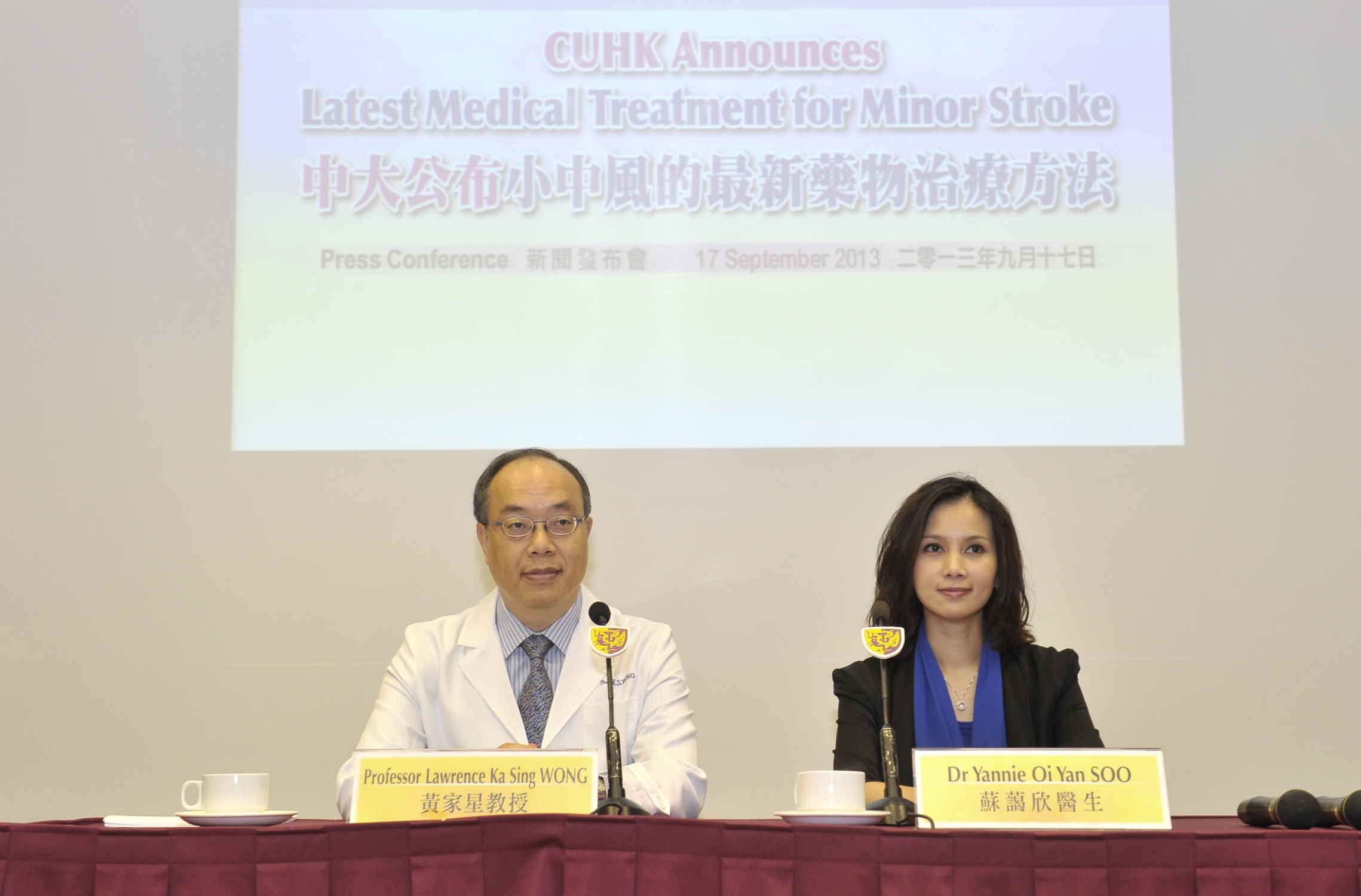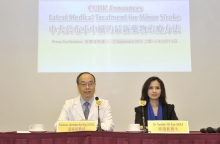CUHK
News Centre
CUHK Announces Latest Medical Treatment for Minor Stroke
A recent research conducted by The Chinese University of Hong Kong (CUHK) showed that the use of short-term dual anti-platelet therapy is more effective than single anti-platelet agent in preventing recurrent stroke, heart attack and death among Transient Ischaemic Attack (TIA) and minor stroke patients. The research results have recently been published on the website of the renowned international medical journal Circulation. (Website: http://circ.ahajournals.org/content/early/recent, published on 12 September)
Ischaemic stroke is characterized by loss of brain functions due to inadequate blood supply to brain, which can lead to permanent physical disabilities, such as paresis and numbness of one side of limbs, slurred speech and dysphagia, etc. Stroke is now the number one cause of death in China, killing more than 1.5 million people each year. In Hong Kong, more than 20,000 stroke patients per year are admitted to hospital for treatment and more than 3,000 of them died. Tens of thousands of stroke survivors were disabled by the disease. Transient Ischaemic Attack (TIA) is a mild and reversible form of stroke with shorter duration of symptoms (< 24 hours). About 15% to 26% of strokes are preceded by TIA. Conversely, about 15% of TIA patients develop stroke within 3 months, half of the cases occur within 48 hours. Therefore, early treatment is essential in preventing recurrent stroke.
In 2010, the Division of Neurology led by Prof. Lawrence Ka Sing WONG at CUHK successfully demonstrated that the combination therapy with clopidogrel and aspirin was effective in reducing microembolic signals in stroke patients. Professor Wong’s team has recently completed a meta-analysis combining the results of the above study with 13 other randomized trials in other stroke centers in the world involving 9,012 stroke/TIA patients, to compare the clinical effectiveness of the dual antiplatelet therapy in stroke/TIA patients within 3 days of symptom onset versus single antiplatelet agent. Among the subjects, 668 had recurrent stroke and 846 had major vascular events (including recurrent stroke, TIA or ischaemic heart disease) or death. On the safety endpoint, only 37 patients had serious bleeding. The analysis showed that the combination therapy significantly reduced the risk of recurrent stroke by 31% and the risks of vascular events or death by 29%. The combination of clopidogrel and aspirin was the most commonly used therapy among the trials studied.
In conclusion, the study has proved that dual anti-platelet therapy (especially using clopidogrel and aspirin) is more effective than single anti-platelet agent in preventing recurrent stroke, heart attack or death within three months when minor stroke happens. CUHK suggests patients with minor stroke symptoms to be more cautious and receive treatment as soon as possible.





